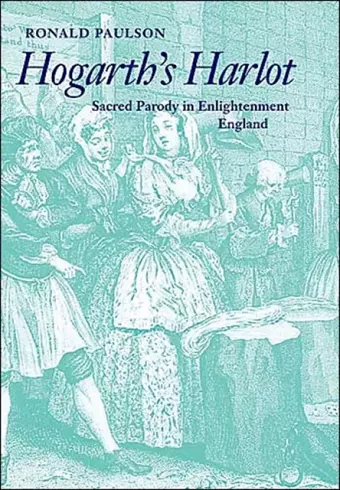Hogarth's Harlot
Sacred Parody in Enlightenment England
Format:Hardback
Publisher:Johns Hopkins University Press
Published:3rd Dec '03
Currently unavailable, and unfortunately no date known when it will be back

Ronald Paulson is the world's major scholar on the correspondences between literary and visual satire. In this book we see a senior scholar at the height of his powers engaged in rescension while striking out into new territory. His scholarship is impeccable and accessible and will be greatly appreciated by scholars and students of the eighteenth century and the art-loving public. -- Paul Korshin, University of Pennsylvania
As England's faithful began to worry less about everlasting felicity in heaven and more about life on earth, these diverse artists provided them with new ways of thinking about both their spiritual and their social existence.In 1732, a blasphemous burlesque of the Christian Atonement was published in England without comment from the government or the Church of England. In Hogarth's Harlot, Ronald Paulson explains this absence of official censure through a detailed examination of the parameters of blasphemy in eighteenth-century England and the changing attitudes toward the central tenets of the Christian Church among artists in this period. Discerning a profound spiritual and cultural shift from atonement and personal salvation to redemption, incarnation, and acts of charity and love, Paulson focuses on such influential factors as English antipopery and anti-Jacobitism, as well as the ideas of the English Enlightenment. Offering imaginative and deeply informed readings of a wide range of artistic works-engravings by Hogarth; poems by Milton, Pope, Christopher Smart, and Blake; plays by Nicholas Rowe and George Lillo; paintings and sculptures by Benjamin West, John Zoffany, Joseph Wright of Derby, and Louis-Francois Roubiliac; and oratorios by George Frederic Handel-Paulson explores the significance of the medium in which artists produced "sacred parody" and how these works both reflected and influenced attitudes toward the nature of Christianity in England. As England's faithful began to worry less about everlasting felicity in heaven and more about life on earth, these diverse artists provided them with new ways of thinking about both their spiritual and their social existence.
This remarkably learned work argues that... readers need to understand the technicalities of atonement, incarnation, redemption, and mediation to appreciate the parodia sacra of Hogarth's famous series, The Harlot's Progress. Choice 2004 This book is everywhere inventive and suggestive, a pleasure to read through but also to use discontinuously for its erudite commentary on particular texts, prints and paintings. -- Steven N. Zwicker Studies in English Literature 2004 An incomparably rich and suggestive book... It should be required reading for all those scholars of the eighteenth century-from whatever discipline of the humanities-who are interested in ideas and the widening of horizons. -- Min Wild Cercles Even as it advances a provocative argument, Hogarth's Harlot enlarges our enjoyment of Hogarth and his rowdy times. -- Clement Hawes Modern Philology 2005
ISBN: 9780801873911
Dimensions: 229mm x 152mm x 36mm
Weight: 748g
448 pages